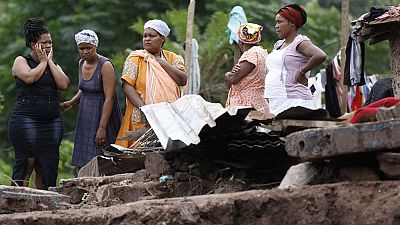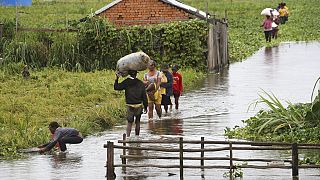South Africa
South African authorities are releasing emergency funds on Friday to support tens of thousands of people who have been displaced by the devastating floods that have killed nearly 400 people in the port city of Durban.
South African President Cyril Ramaphosa has declared the region a disaster area adding that the situation is a reflection of climate change.
Finance Minister Enoch Godongwana told TV station Newsroom Afrika that an initial billion rand ($68.30 million) for emergency relief was available for immediate use and that more would follow.
This week’s floods in Kwazulu-Natal Province have knocked out power lines, shut down water services, interrupted operations at one of Africa’s busiest ports and strewn highways and beaches with debris.
On Thursday, residents affected by the disruption in water and electricity supply staged a protest, provoking the government’s immediate response.
“We are still at an emergency relief stage. There is a need for speed in this matter,” Godongwana said. “The first phase is to get professionals to make an assessment of the damage and the cost. The second phase is going to be a recovery and repair.”
41 000 people have been rendered homeless through the floods that have hit South Africa over the past five days. According to a new report on Friday, the gruesome search for those still missing continues.
As the Indian Ocean warms owing to human emissions of heat-trapping gases, scientists believe it is battering Africa’s southwestern coast with more violent storms and floods, a trend likely to worsen dramatically in the next few decades.













Go to video
Semenya ruling shakes foundations of gender rules in sport
01:53
SMES under pressure as business confidence hits four-year low in South Africa
Go to video
Former South African deputy president David Mabuza dies at 64
01:22
World will have to learn to live with heatwaves, UN says
00:56
South Africa: At least 101 dead in Eastern Cape floods as rescue efforts continue
Go to video
African gut study reveals urbanization threatens microbial diversity